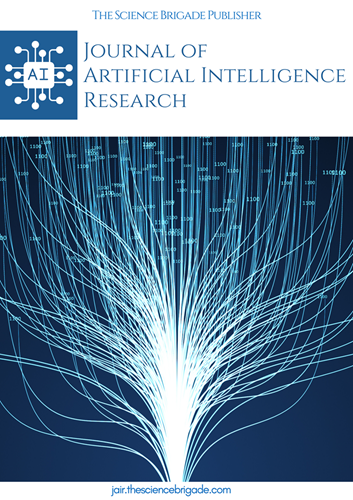Continuous Testing in DevOps and MLOps
Establishing Robust Validation for Machine Learning Models
Keywords:
Continuous Testing, DevOps, MLOps, Machine Learning, Software Development LifecycleAbstract
In the era of rapid software delivery, the integration of continuous testing in DevOps and MLOps has emerged as a critical component for ensuring the reliability and effectiveness of machine learning models throughout their lifecycle. This paper investigates how continuous testing can be embedded within DevOps and MLOps pipelines to validate machine learning models not only during development but also after deployment. By establishing robust validation mechanisms, organizations can minimize risks associated with model performance degradation and enhance overall system reliability. The study emphasizes the importance of automated testing strategies, including unit tests, integration tests, and performance tests, tailored specifically for machine learning applications. Furthermore, it discusses the challenges faced in implementing continuous testing in these environments and offers practical recommendations to overcome them. Ultimately, this research aims to provide a comprehensive understanding of continuous testing's role in enhancing the quality of machine learning models in DevOps and MLOps contexts.
References
Gayam, Swaroop Reddy. "Deep Learning for Autonomous Driving: Techniques for Object Detection, Path Planning, and Safety Assurance in Self-Driving Cars." Journal of AI in Healthcare and Medicine 2.1 (2022): 170-200.
Thota, Shashi, et al. "MLOps: Streamlining Machine Learning Model Deployment in Production." African Journal of Artificial Intelligence and Sustainable Development 2.2 (2022): 186-206.
Nimmagadda, Venkata Siva Prakash. "Artificial Intelligence for Real-Time Logistics and Transportation Optimization in Retail Supply Chains: Techniques, Models, and Applications." Journal of Machine Learning for Healthcare Decision Support 1.1 (2021): 88-126.
Putha, Sudharshan. "AI-Driven Predictive Analytics for Supply Chain Optimization in the Automotive Industry." Journal of Science & Technology 3.1 (2022): 39-80.
Sahu, Mohit Kumar. "Advanced AI Techniques for Optimizing Inventory Management and Demand Forecasting in Retail Supply Chains." Journal of Bioinformatics and Artificial Intelligence 1.1 (2021): 190-224.
Kasaraneni, Bhavani Prasad. "AI-Driven Solutions for Enhancing Customer Engagement in Auto Insurance: Techniques, Models, and Best Practices." Journal of Bioinformatics and Artificial Intelligence 1.1 (2021): 344-376.
Kondapaka, Krishna Kanth. "AI-Driven Inventory Optimization in Retail Supply Chains: Advanced Models, Techniques, and Real-World Applications." Journal of Bioinformatics and Artificial Intelligence 1.1 (2021): 377-409.
Kasaraneni, Ramana Kumar. "AI-Enhanced Supply Chain Collaboration Platforms for Retail: Improving Coordination and Reducing Costs." Journal of Bioinformatics and Artificial Intelligence 1.1 (2021): 410-450.
Pattyam, Sandeep Pushyamitra. "Artificial Intelligence for Healthcare Diagnostics: Techniques for Disease Prediction, Personalized Treatment, and Patient Monitoring." Journal of Bioinformatics and Artificial Intelligence 1.1 (2021): 309-343.
Kuna, Siva Sarana. "Utilizing Machine Learning for Dynamic Pricing Models in Insurance." Journal of Machine Learning in Pharmaceutical Research 4.1 (2024): 186-232.
Sengottaiyan, Krishnamoorthy, and Manojdeep Singh Jasrotia. "SLP (Systematic Layout Planning) for Enhanced Plant Layout Efficiency." International Journal of Science and Research (IJSR) 13.6 (2024): 820-827.
Venkata, Ashok Kumar Pamidi, et al. "Implementing Privacy-Preserving Blockchain Transactions using Zero-Knowledge Proofs." Blockchain Technology and Distributed Systems 3.1 (2023): 21-42.
Reddy, Amit Kumar, et al. "DevSecOps: Integrating Security into the DevOps Pipeline for Cloud-Native Applications." Journal of Artificial Intelligence Research and Applications 1.2 (2021): 89-114.
Downloads
Published
How to Cite
Issue
Section
License

This work is licensed under a Creative Commons Attribution-NonCommercial-ShareAlike 4.0 International License.
License Terms
Ownership and Licensing:
Authors of this research paper submitted to the journal owned and operated by The Science Brigade Group retain the copyright of their work while granting the journal certain rights. Authors maintain ownership of the copyright and have granted the journal a right of first publication. Simultaneously, authors agreed to license their research papers under the Creative Commons Attribution-NonCommercial-ShareAlike 4.0 International (CC BY-NC-SA 4.0) License.
License Permissions:
Under the CC BY-NC-SA 4.0 License, others are permitted to share and adapt the work, as long as proper attribution is given to the authors and acknowledgement is made of the initial publication in the Journal. This license allows for the broad dissemination and utilization of research papers.
Additional Distribution Arrangements:
Authors are free to enter into separate contractual arrangements for the non-exclusive distribution of the journal's published version of the work. This may include posting the work to institutional repositories, publishing it in journals or books, or other forms of dissemination. In such cases, authors are requested to acknowledge the initial publication of the work in this Journal.
Online Posting:
Authors are encouraged to share their work online, including in institutional repositories, disciplinary repositories, or on their personal websites. This permission applies both prior to and during the submission process to the Journal. Online sharing enhances the visibility and accessibility of the research papers.
Responsibility and Liability:
Authors are responsible for ensuring that their research papers do not infringe upon the copyright, privacy, or other rights of any third party. The Science Brigade Publishers disclaim any liability or responsibility for any copyright infringement or violation of third-party rights in the research papers.




